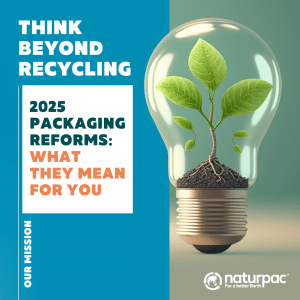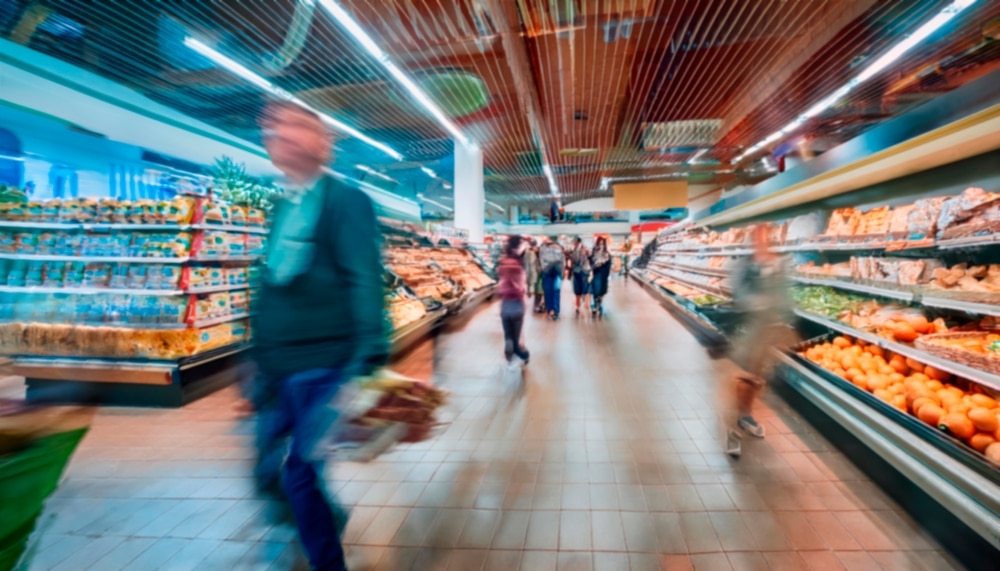Naturpac, led by J-Tech Systems, is at the forefront of sustainable packaging for Australia’s fresh produce industry. As the brand custodian, J-Tech brings years of industry expertise to support Naturpac’s mission of reducing environmental impact while ensuring the functionality and quality required in fresh produce packaging. With the Australian government recently concluding its consultation on sustainable packaging reforms, it is crucial to explore how these changes could reshape the industry, the risks they present, and the opportunities for meaningful progress.
The Context: Sustainable Packaging Reforms in Australia
Sustainable packaging reforms in Australia are driven by the urgent need to address waste, pollution, and inefficiencies in recycling systems. The Department of Climate Change, Energy, Environment and Water (DCCEEW) has identified packaging as a critical area for improvement in the shift towards a circular economy.
The reforms are designed to tackle several key issues: increasing the use of recycled content to reduce reliance on virgin materials, minimising non-recyclable packaging waste, expanding recycling infrastructure to handle complex materials like soft plastics, and promoting consistent, national standards for packaging design, labelling, and recyclability. While these goals align with Naturpac’s vision, the path to achieving them requires careful planning and collaboration among stakeholders.
Naturpac’s Role in Sustainable Packaging Reforms
Naturpac was established to lead the fresh produce industry towards ethical and sustainable packaging solutions. With J-Tech’s support, we have developed eco-friendly alternatives, including certified home compostable fruit stickers, recyclable pouches, and clamshells, trays and other packaging made from 100% recycled PET (rPET).
At the heart of Naturpac’s approach is a commitment to balance sustainability with practicality. The brand recognises the importance of maintaining packaging functionality—extending shelf life, protecting produce during transit, and ensuring compliance with food safety standards—while reducing environmental impact.
Understanding the Sustainable Packaging Reform Options
The DCCEEW consultation outlined three potential pathways for sustainable packaging reforms: strengthening the APCO framework, introducing mandatory requirements, and implementing eco-modulated fees with market-based mechanisms. Our submission strongly supported the first option. We believe this approach balances the need for progress with the practical realities faced by growers, producers, and suppliers. By building on APCO’s existing framework, it allows for gradual transitions rather than sudden, disruptive changes.
Risks and Challenges of Sustainable Packaging Reforms
Sudden bans on materials like soft plastics or strict recycled content thresholds could lead to significant stock write-offs for non-compliant packaging, increased costs for sourcing alternatives, and supply chain challenges for materials like rPET, where demand already exceeds supply. J-Tech has estimated that replacing $1 million worth of non-compliant stock could cost up to $10 million when accounting for research, development, machinery upgrades, and disposal. Such costs could threaten the financial stability of small producers and growers, who already operate on tight margins.
A major barrier to sustainable packaging reforms is the lack of recycling infrastructure, particularly for soft plastics. Without investment in advanced processing technologies and collection systems, businesses may find it impossible to meet new requirements. Naturpac has called for urgent government support to address these gaps, ensuring that sustainable packaging options can be effectively recycled.
In the fresh produce sector, retailers have significant control over packaging specifications. We emphasised that reforms must hold retailers accountable for their role in driving sustainable practices. If retailers continue to prioritise cost or appearance over environmental impact, growers and suppliers will bear an unfair share of the burden.
Our submission also highlighted the potential for sustainable packaging reforms to inadvertently increase food waste. Packaging plays a critical role in preserving freshness and preventing spoilage. Alternatives that fail to meet these performance standards could lead to higher levels of food waste, undermining broader sustainability goals.
Naturpac’s Recommendations for Sustainable Packaging Reforms
To address these challenges, Naturpac has proposed several practical solutions.
- Targeted investment in recycling facilities, particularly those capable of processing soft plastics and complex materials, is essential.
- Advanced sorting technologies and local reprocessing capacity are necessary to ensure the viability of sustainable packaging options.
- A centralised, national directory of packaging options—detailing recyclability, compostability, and compliance standards—would help businesses make informed decisions.
- Consistent labelling standards, such as the Australasian Recycling Label (ARL), are also critical to improving consumer understanding and recycling rates.
- Financial incentives for businesses that invest in research and development, including grants, tax credits, and funding for collaborative projects. These measures would encourage the development of new materials and technologies that meet sustainability and functionality requirements.
Gradual implementation of reforms, with realistic transition periods, is vital to allow businesses to adapt. Naturpac has recommended phased approaches, with exemptions or extensions for industries where alternatives are not yet feasible.
To ensure a fair distribution of responsibility, retailers should be required to engage in sustainable packaging decisions. This could include mandating retailer support for new materials and ensuring that packaging specifications align with sustainability goals.

Educating Stakeholders on Sustainable Packaging Reforms
Naturpac recognises that achieving a circular economy requires collaboration across the supply chain and active engagement with consumers. Education is a key part of this effort.
Through initiatives such as free sustainability workshops for children, we have been working to raise awareness about the role of packaging in reducing waste. However, consumer education should be a shared responsibility, with retailers playing a more active role in promoting proper disposal and recycling practices.
Naturpac has also called for industry-wide campaigns to improve understanding of sustainability labelling, such as recycled content percentages and compostability markers. These efforts would help consumers make informed choices and increase the effectiveness of recycling systems.
Collaboration for Effective Sustainable Packaging Reforms
Naturpac’s submission to the DCCEEW consultation reflects our commitment to practical and effective solutions for packaging reform – and ensuring the final reform represents the best interests for everyone in the fresh produce supply chain. While naturally we support the goals of reducing waste and pollution, we also need to be practical and move ahead with balanced implementation that considers the realities faced by growers, suppliers, and retailers.
Key to this transition will be collaboration. Governments must provide the infrastructure and incentives needed to support sustainable practices. Retailers must share responsibility for driving change and accept compromises where necessary. Consumers must be engaged through education and awareness campaigns. We must continue to innovate and advocate for solutions that align with environmental and economic goals.
Leading the Future of Sustainable Packaging Reforms
As Australia moves towards implementing its sustainable packaging reforms, Naturpac is ready to lead by example. We will continue to offer sustainable solutions that balance functionality with environmental responsibility. By working together, stakeholders across the supply chain can create a future where sustainable packaging reforms benefit both the planet and the people who depend on it.
Not sure how the reforms will impact you?
Naturpac are offering a no-obligation consultation with anyone who is concerned about the impacts of the impending reforms. Contact us today.
